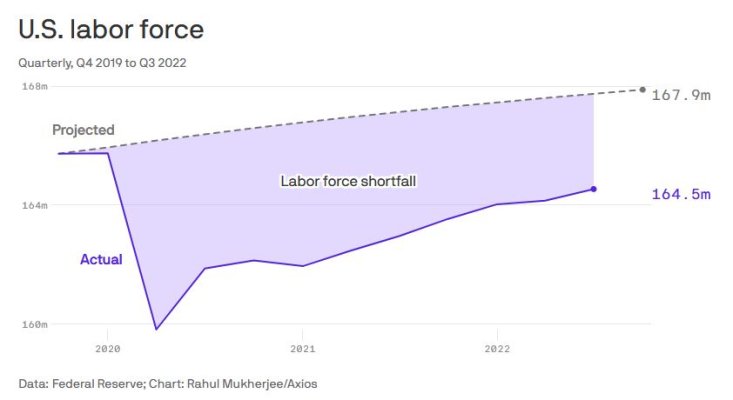REWahoo
Give me a museum and I'll fill it. (Picasso) Give
The Missing Workers Who Are Never Coming Back
Federal Reserve chair Jerome Powell struck a particularly somber note at his press conference earlier this week when he mentioned that one reason the labor market is so tight right now is that many workers died from COVID-19.
The big picture: Economists have theorized for a while about the impact of COVID deaths on the labor market. Now, research has started to emerge and key public figures like Powell are starting to talk about it explicitly.

